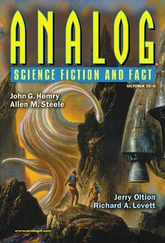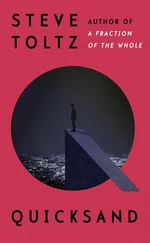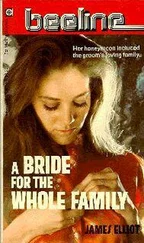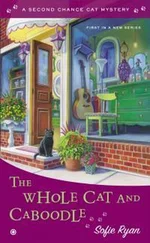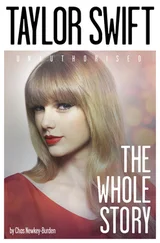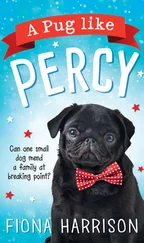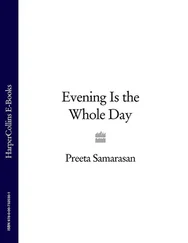It was the observatory.
My observatory!
The observatory I had suggested into existence was the direct cause of my mother’s, father’s, and brother’s deaths. It was the final nail in the coffin of that odious suggestion box of mine, that slimy box that had turned the town against my family, put my brother in a mental institution, then into a young offenders’ home, and now into the grave (figuratively speaking; literally speaking, into a cardboard box that had once contained seedless grapes). I had thought that with the observatory I could change people’s souls for the better, but instead I succeeded only in accelerating their obliteration. When my brother went into the hospital, I should have destroyed the suggestion box that put him there; and when he destroyed the suggestion box, blinding our only friend, I should have then and there destroyed everything connected to the box, the box that suddenly reminded me of the box that was now in my hands, the box with my brother in it.
I walked on.
I didn’t forget Stanley ’s warnings, or the detectives and their determination to prosecute me. Time to leave for good. Besides, there was nothing more to learn here. Time to travel to new lands to practice old habits. New longings! New disappointments! New trials and failures! New questions! Would toothpaste taste the same everywhere? Would loneliness feel less bitter in Rome? Would sexual frustration be less of a grind in Turkey? Or Spain?
This I thought as I moved through the silence of the dead town, the dreamless town, the town that was charred and black like burned toast. Don’t scrape it! Don’t save it! Toss my town into the garbage. It’s carcinogenic.
The embers of my childhood were fading to cold, hard lumps. No wind could fan them to life now. It was gone. I had not a person in the world. Australia was still an island, but I was no longer marooned on it. I was finally adrift. And it was endless, the sea beyond. No horizons.
No one knew me where I was going, no one knew my story, my brother’s story. My life was reduced to no more than a secret anecdote I could reveal or keep hidden for all time. That was up to me.
I walked the long, windy, dusty road out of town.
I had the feeling of leaving an amusement park without having been on any of the rides. While I’d always hated the town, the people, their lives, I had existed beside them nonetheless, and yet I had not immersed myself in the stream of life, and that was regrettable, because even if it’s the worst amusement park in the world, if you’re going to take the trouble to spend twenty-two years there, you might as well at least have a go. The problem was, every ride made me sick. What could I do?
Then I remembered that I still held Terry in a cardboard box.
I was definitely not going to have a nervous breakdown deciding what to do with the ashes of my downsized little brother: I would just get rid of them, quickly, secretly, without ceremony. If a child passed me in the street, I would give him the box. If I saw a suitable ledge, I would leave it on the ledge. I continued this line of thought until I became so fascinated by the overall idea of ashes that I got thirsty.
Up ahead I saw a gas station and grocery store. I went inside. The fridge was at the back. I walked down the aisle and grabbed a Coke. Turning back, I saw beside me a shelf that contained small jars of Indian spices, cayenne pepper, and Italian herbs. Obscured from the shopkeeper’s view, I opened up the jars one by one and emptied half their contents onto the floor. Then I poured Terry’s ashes into the jars with little precision, spilling much of him on my feet, so that when I finished, I walked out with my brother on my shoes. And then- I have this image in my head forever- I wiped my brother off my shoes with my hands and finished him off by washing him into a nearby puddle, thereby leaving my brother’s last remnants floating in a shallow puddle of rainwater on the side of the road.
It’s funny.
People have always asked me, “What was Terry Dean like as a child?” but no one has ever posed the more pertinent question, What was he like as a puddle?
The answer: still, copper-brown, and surprisingly unreflective.
The End!
Out the window I could see a pink dawn sky covering the backyard and probably farther, at least to the corner store. The morning birds, unaware of the concept of sleep-ins, were chirping their usual dawn chirps. Dad and I sat in silence. Talking for seventeen hours and covering almost every minute of his first twenty-two years on earth had worn him out. Listening had done the same to me. I don’t know which of us was more exhausted. Suddenly Dad brightened and said, “Hey, guess what?”
“What?”
“The blood’s congealed!”
Blood? What blood? Oh, that’s right- I was in a fight, wasn’t I? I did get beaten senseless by my peers, didn’t I? I reached up and felt my face. There was a hard, crusty substance on my lower lip all right. I ran to the bathroom mirror to look. Woo-hoo! Yes, sometime during Dad’s story the blood on my face had turned black and globular. I looked revolting. I smiled for the first time since way before the story began.
“You want me to take a photo before you wash it off?” Dad called from my room.
“Nah, there’ll be plenty more blood where that came from.”
“Too true.”
I got the corner of a towel and held it under hot water and sponged off the crusted blood. As I cleaned up my face and the water turned the black blood red and stained the white towel too, I thought about Dad’s story: the story of Terry Dean. It seemed to me I hadn’t learned as much about Uncle Terry as you’d think you would in a seventeen-hour monologue, but I had learned an awful lot about my father.
I had the uneasy feeling that maybe every word he said was true. Certainly he believed it all. There’s something disturbing about a thirty-two-year-old man putting his thirty-two-year-old soul into the mouth of a child, even if that child is himself as a boy. Was my father an eight-year-old anarchist? A nine-year-old misanthrope? Or was the boy in the story an unconscious reinvention, a man with a man’s experience of the world trying to make sense of his childhood, obliterating along the way any of the thoughts or perspectives he would really have experienced during that time? Maybe. After all, memory may be the only thing on earth we can truly manipulate to serve us, so we don’t have to look back at ourselves in the receding past and think, what an arsehole!
But Dad was not one to airbrush his memories. He liked to preserve everything in its natural state, from his hair to his past. That’s how I knew every word he said was true, and why I still feel sick when I remember the shocking revelation that came after this one, the crazy bombshell about the most important woman who was never in my life: my mother.
Iwas taking a forty-five-minute shower. I know I was being unforgivably inconsiderate of the environment, but I’d read in New Scientist that in a couple of billion years the expanding universe will have stretched to breaking point and will start contracting like a rubber band, time will run backward, and (therefore) the water will eventually return to the showerhead.
“Jasper! I completely forgot!” I heard Dad shouting.
“I’m in the shower!”
“I know. Do you know what the date is?”
“No.”
“Guess.”
“The second of December.”
“No. It’s the seventeenth of May! I can’t believe I forgot all about it! Hurry up!”
The seventeenth of May, my mother’s birthday. Inexplicably, Dad always bought her a present. Inexplicably, he’d make me unwrap it. I never knew whether to say thank you. Usually it was a book or chocolates, and after I opened it and said something like “Good one,” Dad would suggest we give it to her in person. That meant a trip out to the cemetery. This morning, since the significance of the date had slipped his mind, Dad ran around the house looking for something to wrap. In the end he found a bottle of whisky with two decent sips left. I stood there on edge while he wrapped it, and moments later he stood there eagerly while I unwrapped it and said, “Good one.”
Читать дальше

